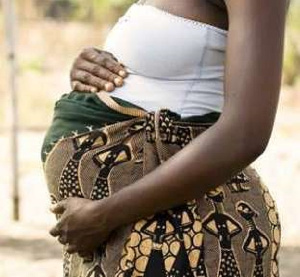Statistics from the 2022 Ghana Demographic and Health Survey (GDHS) indicate that one in every 10 (10.9%) adolescent girls aged 15 to 19 years has had a live birth.
The survey carried out by the Ghana Statistical Service was to highlight challenges such as early marriage and childbearing, and deprivation of education that prevent young girls from reaching their full potential.
This was to mark the International Day of the Girl Child celebrated annually on October 11; this year’s theme is "Invest In Girls' Rights: Our Leadership, Our Well-being".
Findings from the survey indicate that;
The percentage of adolescents that have had a live birth increases with age, with 19-year-olds recording the highest rate of almost a quarter (23.8%).
In 10 out of the 16 regions, more than 10 percent of adolescents 15 to 19 years have had a live birth with the Bono East Region recording the highest, thus, one in every five (19.1%) girls in this age range have had a live birth.
The Savannah (17.5%) and the North East (17.5%) regions are tied for the second highest followed by the Ashanti Region (16.8%).
The Greater Accra Region (5.4%) has the lowest percentage and is the only region to record a figure less than half the national average.
The percentage of girls 15 to 19 years old that have had a live birth is almost twice in rural areas (14.4%) compared to urban (8.0%).
More than a quarter (26.5%) of adolescent girls with no education had had a live birth compared to 20.3 percent of those with primary education.
The percentage of girls with secondary education (8.6%) who had a live birth was less than half of those with primary or no education.
Adolescent girls in households in the lowest wealth quintile (17.5%) had the highest percentage with a live birth, more than four times the figure recorded for girls in the highest wealth quintile (3.7%).
Finally, about one in every 10 (9.1%) adolescents aged 15 to 19 years had been in a marital union during the 2021 Population and Housing Census: 5.5 percent were currently married, 3.2 percent were currently in informal unions or living with a partner, and 0.4 percent had formerly been married.
Latest Stories
-
KPMG report exonerates us – SML
14 mins -
Works and Housing Ministry seeks lasting solutions to challenges with stakeholders engagement
23 mins -
President’s statement on GRA-SML contract underlines Fourth Estate’s revelation – MFWA
27 mins -
Director urges parents to protect children from abuse
1 hour -
Imani-Ghana criticises Akufo-Addo for not lauding Fourth Estate’s contribution to social development
1 hour -
Man remanded for allegedly stabbing businessman with broken bottle and screwdriver
2 hours -
Population in Kumasi Central Prison surges to 1800, threefold exceeding capacity
2 hours -
NPP to conduct La Dadekotopon parliamentary primary today
2 hours -
KPMG’s report on GRA and SML deal, government white paper on report and matters arising
2 hours -
I won’t reply to Chris Brown tour criticism – Ayra Star
2 hours -
British Columbia to back off drug decriminalisation project
2 hours -
Veteran commentator Joe Lartey Sr dies at 96
2 hours -
Livestream: Newsfile discusses KPMG report on SML deal, ILO on SSNIT reserves and NDC’s running mate
3 hours -
Ghanaian activist hugs over 1,100 trees in an hour to set Guinness World Records
3 hours -
Mathew Anim Cudjoe’s Dundee United promoted to Scottish Premiership after Championship win
3 hours

